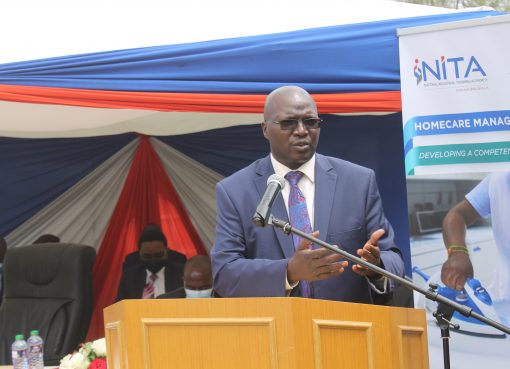The County Government of Kwale is collaborating with the Bible Translation and Literacy (BTL) organization to implement a mother tongue education (MTE) program during the foundational years of schooling.
The partnership will see the county department of education collaborate with the religious organization to develop mother tongue learning materials for the pre-primary level.
Mother Tongue Education (MTE) refers to the provision of education using mother tongue as the language of instruction and does not preclude learning in a second or even third language.
The four-year partnership entails conducting baseline surveys, sensitization of activities to key stakeholders, development of mother tongue learning materials for children and monitoring and capacity building.
BTL is a nonprofit faith-based organization with a primary objective of developing small language groups in Kenya and beyond.
Speaking during the signing of a Memorandum of Understanding (MoU), County Education Executive Mangale Ndegwa, said the partnership is a big step towards empowering future generations.
Ndegwa noted that the education standards in the coastal county are still low thus the need for partnership with different stakeholders.
“This is the way to go and as a devolved unit we are determined to inject adequate resources into the education sector for a better future for all,” he said.
The education executive disclosed that the county government has constructed over 500 Early Childhood Education (ECD) centers since 2013 across 20 wards spread in the four sub counties of Matuga, Msambweni, Lunga Lunga and Kinango.
Ndegwa assured BTL that the county government is committed to the promotion of the partnership so that young learners are exposed to their mother tongue as a medium of instruction.
“As a county we have hired 700 ECD teachers under permanent and pensionable terms and this partnership will ensure education in indigenous languages is entrenched,” Ndegwa said.
He said in 2013, the county government initiated the ‘Elimu ni Sasa’ education program which has sponsored over 5,000 students in secondary education and over 3,000 students in colleges and universities.
Kwale County has been allocating Sh400 million each financial year to execute the education bursary policy.
Ndegwa also noted that the county has initiated a school feeding program at the pre-primary level thus increasing the enrolment rates.
BTL has been involved in piloting a program known as the Mother Tongue Education Program for indigenous languages focusing on the development of mother-tongue based school learning materials and capacity building for teachers hailing from Pokomo, Orma, Digo, and Duruma communities found in Tana River and Kwale counties.
In Kwale, the organization has developed mother-tongue school learning materials for grades one, two and three in the Digo language.
It seeks to bring parity in the education levels of children in Kwale and Tana River counties with other children in the country allowing the children to learn in a language they understand best.
BTL’s National Director Rev. Peter Munguti, said the cooperation will improve education standards in the county.
Munguti added that the partnership between the organization and counties is to ensure that the aspect of language development is fully executed during early learning.
He said mother tongue use in lower primary schools deserves to be supported by all and sundry, noting that it is a sound educational principle to proceed from the familiar to the new.
The Ministry of Education is implementing the Competency-Based Curriculum (CBC) which emphasizes mother tongue education for learners in pre-primary school level.
Kenya Institute of Curriculum Development (KICD) signaled the need for well-established mother tongue learning for pre-school levels to create a solid foundation for children.
Munguti disclosed that his organization has developed orthographies of over twenty indigenous languages across the country. Orthography is a set of conventions for writing a language, including norms, of spelling, hyphenation, capitalization, word breaks, emphasis and punctuation.
Sometimes there may be variation in a language’s orthography, such as that between American and British spelling in the case of English orthography.
By Raymond Zaka and Hussein Abdullahi




